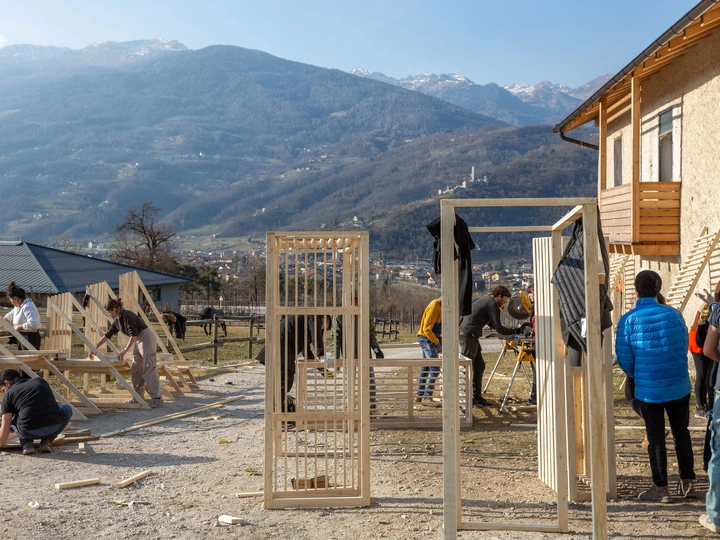Rural Futures: A Living Archive of Regeneration

Gerardo Semprebon
Gerardo Semprebon and Yi Guo are an architectural research-design duo investigating the socio-spatial transformations of rural territories in Italy and beyond. Gerardo Semprebon is an architect, Ph.D., and Assistant Professor at the Department of Architecture and Urban Studies of the Politecnico di Milano. His research focuses on design strategies for rural revitalization, exploring how to valorize existing territorial assets through punctual interventions. He has published widely on topics including vernacular architecture, circular economy, and rural-urban linkages. In 2022, he published the monograph "Rural Futures: Toward an Urban(ized) Peasantry in the Chinese Countryside," which examines the potential of rural regeneration to foster more equitable and sustainable territorial development. Alongside his research, Gerardo teaches architectural design studios at both undergraduate and graduate levels at the Politecnico di Milano, engaging students in hands-on investigations of rural contexts and challenges. Yi Guo is an architect, Ph.D. candidate, and researcher whose work critically interrogates the socio-spatial implications of urbanization, particularly the "congestion paradigm" that has driven development in megacities worldwide. Her doctoral thesis, currently in progress, unpacks urban congestion through a multidimensional framework encompassing ten modes, from the bodily to the digital. By combining urban theory, ethnographic fieldwork, and speculative design research, Yi seeks to render legible the lived experiences, power dynamics, and emancipatory possibilities embedded in the spaces of congestion. Her research highlights the urgent need for alternative urban imaginaries and spatial practices that prioritize social equity, ecological resilience, and place-based identities. Together, Gerardo and Yi bring a complementary set of skills and perspectives to the study of rural territories, weaving expertise in architectural design and critical spatial theory.
Nestled in the dramatic landscapes of the pre-Alps and Apennines, the rural hamlets of Contrada Vallene (Verona) and Poggio (Ancona) embody the rich vernacular heritage and complex transformations of the Italian countryside. Though shaped by distinct geographies and histories, both villages are characterized by unique building traditions, agrarian practices, and community identities now threatened by depopulation, abandonment, and socio-ecological fragmentation.
"Rural Futures" critically engages these challenges by mobilizing architectural tools to document the material cultures, spatial logics, and lived experiences of Contrada Vallene and Poggio, while envisioning regenerative futures rooted in place. Our interdisciplinary team will employ methods from forensic fieldwork and participatory mapping to speculative design and poetic representation to render legible the villages' layered pasts, contested presents, and possible futures.
The project unfolds through interconnected phases:
I. Reading the Rural Palimpsest
- Conducting building archaeology to survey and analyze architectural elements and typologies
- Mapping settlements, infrastructures, and territories to reveal socio-spatial patterns
II. Re-Constructing Rural Imaginaries
- Producing multimedia narratives to interpret vernacular forms, materials, and meanings
- Using film as research method to explore local culture
- Designing speculative interventions to re-imagine abandoned structures and landscapes
III. Disseminating Rural Knowledges
- Directing a documentary film to immerse audiences in the lifeworlds of villages
- Curating an exhibition and digital archive to showcase process and outcomes
- Producing publications
By combining forensic and speculative methods across these sites, "Rural Futures" aims to generate knowledges and visions for regenerating the countryside, catalyzing a reconsideration of rural heritage as a vital source of identity, resilience, and sustainability.